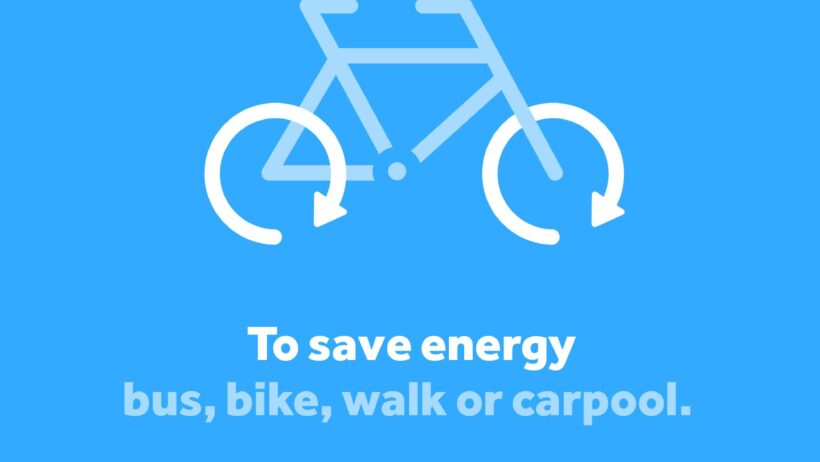Have you ever thought about how much energy your car or truck consumes? The average vehicle can burn a significant amount of fuel and emit harmful greenhouse gases. As an environmental activist, it’s crucial to focus on methods that can conserve energy while enjoying the thrill of the open road. The notion of “driving smarter, not harder” encapsulates an approach that is both efficient and eco-friendly.
So, what does it mean to drive smarter? First, let’s explore the fundamental aspects of fuel efficiency. When it comes to conserving energy in your vehicle, a holistic review of driving habits, maintenance, and vehicle selection is paramount. This exploration not only benefits your wallet but also contributes positively to the environment.
1. Maintain Your Vehicle Regularly
One of the most overlooked ways to conserve energy is through regular vehicle maintenance. Ensure your engine is tuned up, as a well-tuned engine can enhance fuel efficiency significantly. Beyond engine tuning, regularly check your tire pressure. Underinflated tires can increase rolling resistance, leading to higher fuel consumption. Keeping tires adequately inflated can improve gas mileage by up to 3%. Lastly, consider using the recommended motor oil. Using the right type of oil reduces friction and can enhance your vehicle’s performance, thus saving energy.
2. Choose the Right Vehicle
When contemplating a vehicle purchase, energy efficiency should be a criterion in your decision-making matrix. Opt for a model that boasts high fuel efficiency ratings or consider hybrid and electric vehicles that offer drastically reduced energy consumption. These vehicles are engineered with energy conservation in mind, utilizing technology that reduces the need for fossil fuels.
3. Optimize Driving Habits
Driving behaviors directly influence fuel consumption. Start by avoiding rapid accelerations and harsh braking. Instead, strive for a smoother driving style by gradually accelerating and decelerating. The challenge here lies in remembering to maintain a steady flow, almost akin to a dance. Additionally, utilizing cruise control on highways can also improve fuel efficiency by maintaining a consistent speed, which is far more economical than incessantly accelerating and braking.
4. Weight Management
Excess weight can dramatically affect fuel consumption. Consider removing unnecessary items from your vehicle, as every 100 pounds can reduce fuel efficiency by up to 2%. Furthermore, the aerodynamic profile of your vehicle also plays a significant role in energy conservation. Roof racks and cargo carriers, while convenient, can create drag and subsequently decrease fuel economy. Remove these attachments when they are not in use to improve the efficiency of your vehicle.
5. Plan Your Trips
Who hasn’t found themselves taking multiple trips for errands? The challenge here is to consolidate your travel to minimize fuel usage. A well-planned route can save both time and energy. Use online mapping tools to find the quickest and most gas-efficient routes. Moreover, consider carpooling or using public transportation for longer journeys, which can significantly cut down on emissions and fuel costs. What if you dared to challenge yourself to minimize single-occupancy trips? Imagine the cumulative positive impact!
6. Climate Control Strategies
Utilizing your vehicle’s climate control system can be a double-edged sword. Air conditioning can significantly increase fuel consumption, particularly at lower speeds. On cooler days, consider rolling down your windows rather than cranking up the air conditioning. When traveling at higher speeds, however, it may be more efficient to use air conditioning instead of having the windows down, as open windows can create aerodynamic drag. Balancing the use of climate control not only conserves energy but can also enhance your driving experience.
7. Opt for Alternative Fuel Sources
In the quest for energy conservation, exploring alternative fuel options can also be beneficial. Biofuels, hydrogen fuel cells, and electric vehicles are increasingly becoming more accessible and practical. By utilizing alternative energy sources, you partake in a broader movement towards reducing carbon emissions on a larger scale, contributing to climate change mitigation.
8. Stay Educated and Engaged
Lastly, staying informed about the latest advances in fuel efficiency and energy conservation technologies can empower you to make educated decisions. Engage with local environmental groups or online forums that focus on energy conservation in the automotive world. Sharing experiences and tips with others not only broadens your perspective but can also reinforce community efforts toward sustainability.
In conclusion, conserving energy in a car or truck is not merely about how you drive; it’s a multifaceted challenge that extends to vehicle selection, maintenance, and conscious decision-making. By adopting these strategies, not only can you become more adept at saving energy, but you can also inspire others within your community to join the movement toward a more sustainable future. The journey toward energy conservation begins with one mindful choice at a time. So buckle up, and let’s drive smarter together—because every mile counts in the fight against climate change.








